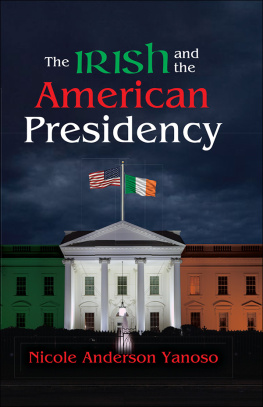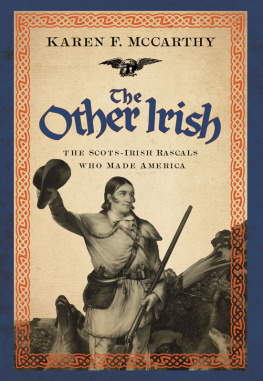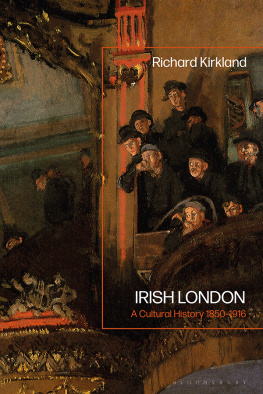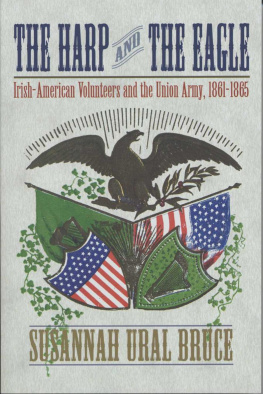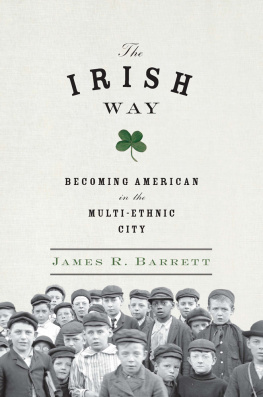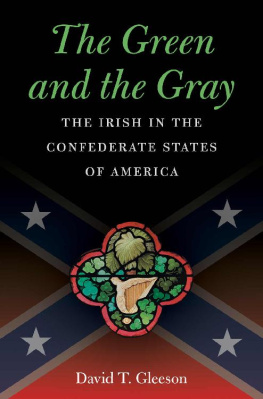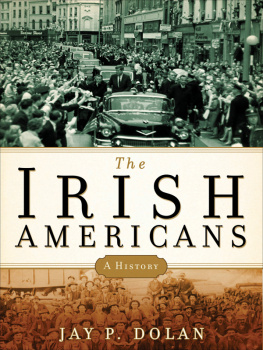
The Irish and the Origins of American Popular Culture
This book focuses on the intersection between the assimilation of the Irish into American life and the emergence of an American popular culture, which took place at the same historical moment in the late nineteenth and early twentieth centuries. During this period, the Irish in America underwent a period of radical change. Initially existing as a marginalized, urban-dwelling, immigrant community largely comprised of survivors of the Great Famine and those escaping its aftermath, Irish Americans became an increasingly assimilated group with new social, political, economic, and cultural opportunities open to them. Within just a few generations, Irish-American life transformed so significantly that grandchildren hardly recognized the world in which their grandparents had lived. This pivotal period of transformation for Irish Americans was heavily shaped and influenced by emerging popular culture, and in turn, the Irish-American experience helped shape the foundations of American popular culture in such a way that the effects are still noticeable today. Dowd investigates the primary segments of early American popular culturecircuses, stage shows, professional sports, pulp fiction, celebrity culture, and comic stripsand uncovers the entanglements these segments had with the development of Irish-American identity.
Christopher Dowd is Associate Professor and Department Chair of English at the University of New Haven.
Routledge Studies in Cultural History
For a full list of titles in this series, please visit www.routledge.com
48The Problem and Place of the Social Margins, 13501750
Edited by Andrew Spicer and Jane L. Stevens Crawshaw
49Electroconvulsive Therapy in America
The Anatomy of a Medical Controversy
Jonathan Sadowsky
50A Cultural History of Sound, Memory, and the Senses
Edited by Joy Damousi and Paula Hamilton
51The Romantic Idea of the Golden Age in Friedrich Schlegels Philosophy of History
Asko Nivala
52Student Revolt, City, and Society in Europe
From the Middle Ages to the Present
Edited by Pieter Dhondt and Elizabethanne Boran
53Respectability as Moral Map and Public Discourse in the Nineteenth Century
Woodruff D. Smith
54The British Anti-Psychiatrists
From Institutional Psychiatry to the Counter-Culture, 19601971
Oisn Wall
55Cultural Histories of Crime in Denmark, 1500 to 2000
Edited by Tyge Krogh, Louise Nyholm Kallestrup and Claus Bundgrd Christensen
56Fascism and the Masses
The Revolt Against the Last Humans, 18481945
Ishay Landa
57The Irish and the Origins of American Popular Culture
Christopher Dowd
The Irish and the Origins of American Popular Culture
Christopher Dowd
First published 2018
by Routledge
711 Third Avenue, New York, NY 10017
and by Routledge
2 Park Square, Milton Park, Abingdon, Oxon OX14 4RN
Routledge is an imprint of the Taylor & Francis Group, an informa business
2018 Taylor & Francis
The right of Christopher Dowd to be identified as author of this work has been asserted in accordance with sections 77 and 78 of the Copyright, Designs and Patents Act 1988.
All rights reserved. No part of this book may be reprinted or reproduced or utilised in any form or by any electronic, mechanical, or other means, now known or hereafter invented, including photocopying and recording, or in any information storage or retrieval system, without permission in writing from the publishers.
Trademark notice: Product or corporate names may be trademarks or registered trademarks, and are used only for identification and explanation without intent to infringe.
Library of Congress Cataloging-in-Publication Data
A catalog record for this book has been requested
ISBN: 978-1-138-63675-0 (hbk)
ISBN: 978-1-315-19654-1 (ebk)
Typeset in Sabon
by Apex CoVantage, LLC
for Harper and Graham
I extend my thanks to Lourdes Alvarez who provided encouragement and support for moving this project forward.
Portions of appeared previously in New Hibernia Review and Irish Studies Review. I am indebted to James Silas Rogers and E. Moore Quinn for their input as editors on those preliminary steps with this project.
I am grateful to the colleagues and friends who shared their expertise with me when I approached them for assistance, especially Jeff Debies-Carl and Jeffrey Shanks.
Above all, I would like to thank my family for their support, especially my wife Adrienne and my children, Harper and Graham.
This book focuses on the intersection between the assimilation of the Irish into American life and the emergence of an American popular culture, which took place at the same historical moment in the late nineteenth and early twentieth centuries. Whereas the concurrence of these two things might at first appear to be an interesting bit of synchronicity, I argue that there is a more significant connection. During this period, as many historians note, the Irish in America underwent a period of radical change. Initially existing as a marginalized, urban-dwelling, immigrant community largely comprised of survivors of the Great Famine and those escaping its aftermath, Irish Americans became an increasingly assimilated group with new social, political, economic, and cultural opportunities open to them. Within just a few generations, Irish-American life transformed so significantly that grandchildren hardly recognized the world in which their grandparents had lived. This pivotal period of transformation for Irish Americans was heavily shaped and influenced by emerging popular culture, and in turn, the Irish-American experience helped shape the foundations of American popular culture in such a way that the effects are still noticeable today. This book investigates the primary segments of early American popular culturecircuses, stage shows, professional sports, pulp fiction, celebrity culture, and comic stripsand uncovers the entanglements these segments had with the development of Irish-American identity.
This book has two primary objectives.
First, it seeks to show the profound impact that popular culture had on the shaping of Irish-American identity. Often, scholarship in the fields of Irish studies and ethnic studies undervalues or even ignores entirely popular culture texts and focuses instead on texts considered more serious or literary. The attention paid to high art, while important, leaves unconsidered the significance of low art. Commercial publications and entertainments affected the daily lives of Americans more frequently and consistently, and perhaps more substantively, than many more highly regarded works of cultural note. Critics sometimes decry popular culture works as base or mundane and equate commercial production with lack of artistry. These criticisms do not account for the possibility of high artistic merit in popular culture, which is an undeserving oversight. Popular culture, like serious literature, has produced both good and bad work. Such criticisms also unduly emphasize issues of quality over issues of significance, missing the possibility that a supposedly low quality work might indeed be culturally significant. Ignoring the influence of popular culture on the development of ethnic identity cannot be justified. My hope is that this study shakes off any lingering prejudice against popular culture texts so that those texts can be connected in a vital way to the ongoing discussions of the Irish-American experience.


